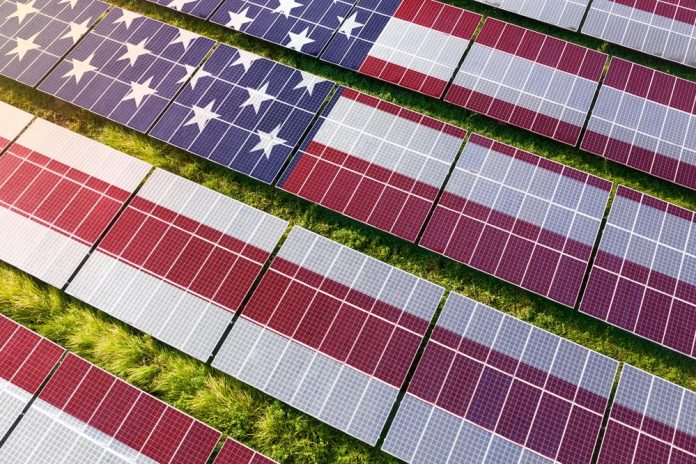The US Government has announced a $40m investment in the solar supply chain, spearheaded by the Department of Energy (DOE).
This initiative aims to enhance the sustainability, efficiency, and longevity of solar energy technologies while supporting the growth of domestic manufacturing.
The funding will be channeled into four research and development projects focused on improving the lifecycle of photovoltaic (PV) solar systems and fostering material recovery from decommissioned systems.
Improving the sustainability of solar PV systems
One key aspect of the DOE’s plan to reinforce the solar supply chain is the allocation of $16m to four projects, with $8m coming from the Bipartisan Infrastructure Law.
This funding will go toward enhancing the sustainability of PV systems through the Materials, Operation, and Recycling of Photovoltaics (MORE PV) program.
The goal of this initiative is to cut the cost of recycling PV modules in half by 2030 and minimise the environmental impact when these systems reach the end of their lifecycle.
Extending the lifespan of solar panels by making them more resistant to wear and easier to repair is a significant part of the strategy.
The initiative also aims to slow the flow of PV panels into the waste stream by addressing common causes of early failures, such as damage from extreme weather.
Furthermore, the funding will support research into improving the durability of PV systems, ensuring that solar energy remains a sustainable solution over time.
The Solar Partnership to Advance Recycling and Circularity (Solar PARC) is another initiative included in the MORE PV program.
This partnership, which consists of 30 organisations, including the Electric Power Research Institute, focuses on enhancing the circularity of solar systems by improving material recovery processes and establishing end-of-life management practices for PV components.
Projects receiving funding
Four key projects have been selected for funding to enhance the domestic solar supply chain:
- Case Western Reserve ($4 million)
- kWh Analytics ($2.4 million)
- University of North Carolina at Charlotte ($1.3 million)
- Electric Power Research Institute ($8 million)
These projects will play a crucial role in developing more durable, sustainable PV technologies.
Incentivising solar manufacturers
In addition to these research projects, the DOE has announced a $3m American-Made Promoting Registration of Inverters and Modules with Ecolabel (PRIME) Prize.
This prize will encourage solar manufacturers to register their products through the Global Electronics Council’s EPEAT ecolabel standard.
Ecolabels, which certifies that products meet specific environmental performance standards, will help solar companies reduce the environmental impact of their technologies and streamline end-of-life management.
Another aspect of the investment is the continued support for solar innovation through the American-Made Solar Prize program.
Now in its seventh round, the program has awarded $21.6m in cash prizes to innovators in solar hardware and software technologies.
This year, two finalist teams—Fram Energy and Gritt Robotics—each received $500,000 for their solutions aimed at overcoming challenges to equitable solar energy deployment.
With Round 8 of the competition now open for applications, the DOE continues to incentivise advancements that will drive the future of the US solar supply chain, fostering sustainable growth in the industry.
The United State’s $40m investment in the solar supply chain underscores its commitment to building a resilient, sustainable, and competitive solar industry.
These initiatives not only support the development of longer-lasting, more environmentally friendly PV systems but also boost domestic manufacturing, ultimately contributing to a cleaner energy future.









